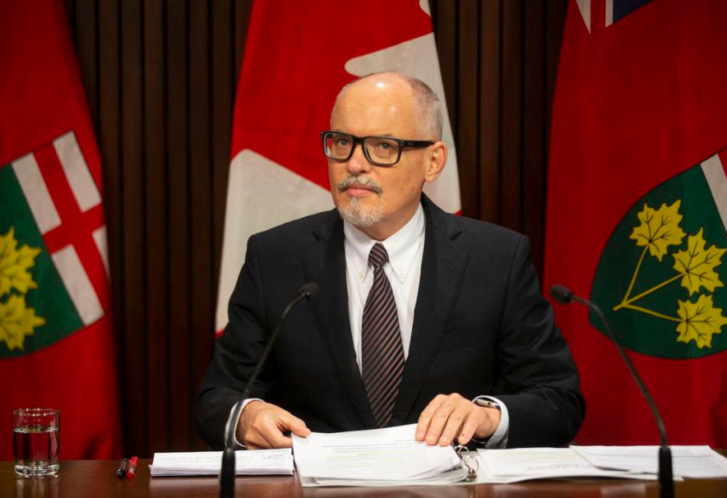Ontario is keeping customer capacity limits on strip clubs, night clubs and wedding receptions as COVID-19 cases head higher and the science table warns hospitals will soon be “under strain” from rising intensive care admissions.
“While we expected to see increases as we entered the winter months, the emergence of Omicron serves as a stark reminder of just how quickly things can change,” chief medical officer Dr. Kieran Moore said in reference to the new variant Tuesday.

“We must always keep our guard up.”
The venues where customer limits remain in place are considered at higher risk for transmission and include sex clubs and bathhouses.
No new public health measures are being considered province-wide despite what Moore called a “disconcerting” modelling forecast from the science table advising him and Premier Doug Ford.
“COVID will almost certainly rise through Jan.; even before Omicron hits us in full force. Case numbers count, because too many Ontarians remain un/under vaccinated & will end up in hospital,” the table said on its Twitter account.
New modelling shows hospital intensive care admissions are forecast to rise to between 250 and 400 in January “even without Omicron.”
That’s up from 156 patients Tuesday, the vast majority of them unvaccinated.
Health Minister Christine Elliott said the province has increased intensive-care capacity in the pandemic, meaning “Ontario is able to safely admit approximately 300 patients with COVID-related critical illness into ICUs without putting at risk urgent surgeries.”
That’s not exactly reassuring for patients with the ICU forecast extending well above 300, said New Democrat MPP Doly Begum (Scarborough-Southwest).
“I don’t think that’s what health-care workers … want to hear right now. Our health-care workers are burned out.”
The science table noted 26 of 34 regional health units, including in the GTA, are seeing increases in cases over the last two weeks and that test positivity rates for COVID are rising.
Daily cases could hit 1,700 by the end of January in a mid-range forecast and 3,000 if trends are less favourable. Ontario reported 928 new infections Tuesday and a seven-day average of 975, more than double the level at the start of November.
“Omicron is not included in these scenarios, and would likely worsen these projections,” the science table wrote in its presentation. “We can’t predict Omicron precisely, but it will almost certainly hit us hard and fast.”
Moore said any increase in restrictions remains up to regional health units but he asked everyone to be cautious as the holiday season arrives.
“Avoid large crowds, practise physical distancing, wear your mask and wear it properly, wash your hands frequently, stay home when you are sick, and get vaccinated.”
Virtually all the critically ill COVID cases in intensive care are “absolutely preventable” with vaccinations, he added.
While it appears Omicron is more transmissible than the dominant Delta variant, it’s not yet clear if it is more virulent. Ontario officials are waiting for more data before deciding if the proof-of-vaccination system will be extended beyond Jan. 17, although few expect it will end given infection trends.
Meanwhile, Independent MPP Belinda Karahalios (Cambridge) was ejected from the legislature Tuesday after showing up despite orders from Speaker Ted Arnott to stay away for 90 days — per policy — following a positive COVID test last month.
Karahalios, who was kicked out of Ford’s Progressive Conservative caucus earlier this year, objected to the move, saying “I took a rapid antigen test last night. It was negative.”
Article From: The Star
Author: Rob Ferguson

